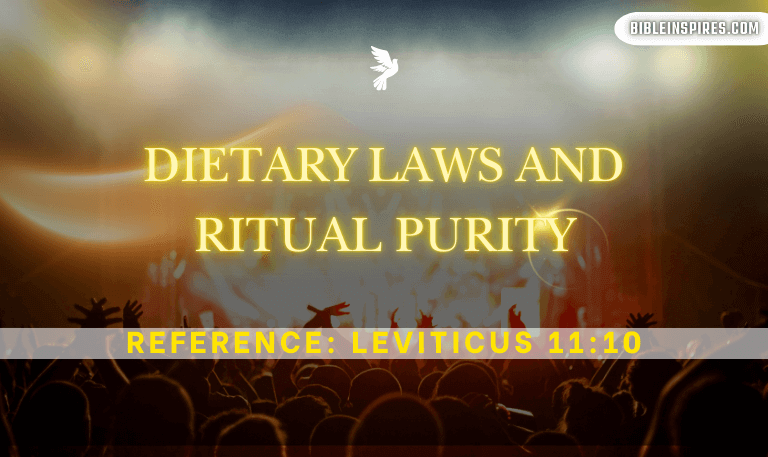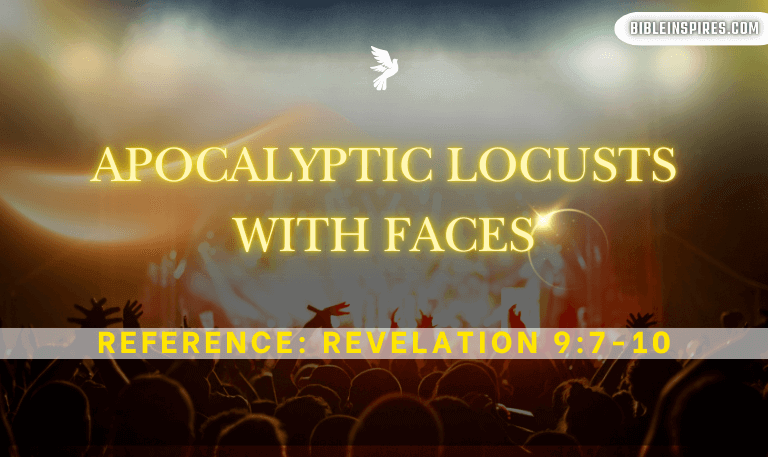The Bible is a treasure trove of wisdom, history, law, poetry, and prophecy. However, among the revered texts lie verses that strike modern readers as downright bizarre. These “weird Bible verses” fuel curiosity, debate, and even awe—inviting us to explore their cultural, historical, and literary contexts. In this article, we delve into some of the most peculiar passages in Scripture, examining their meanings and offering insights that bridge ancient narratives with contemporary understanding.
Understanding Biblical Weirdness
The term “weird Bible verses” often evokes images of talking animals, divine retribution, and cryptic prophecies. However, understanding these verses requires us to look beyond surface-level interpretations.
Cultural and Historical Distance
Ancient Societies: Many biblical texts were written during times when customs, dietary practices, and moral laws vastly differed from today’s standards.
Religious Rituals: Laws and narratives—no matter how odd they may seem—served practical, social, or religious purposes in their original context.
Literary Styles and Prophetic Imagery
Use of Metaphor and Hyperbole: Biblical authors often employed vivid imagery to convey deep spiritual truths.
Symbolic Language: What might seem like nonsense today was once a powerful metaphor capable of communicating complex messages.
Translational Challenges
Language Barriers: Idiomatic expressions in Hebrew, Aramaic, or Greek can lose meaning when translated into modern languages.
Historical Nuances: Certain words or phrases that described everyday realities in the past do not align neatly with contemporary interpretations.
Read Also: Biblical Advice for Overcoming Betrayal
The Cultural and Historical Context
To fully grasp why some Bible verses appear “weird,” consider the historical setting of the Biblical narrative:
Social Norms and Legal Codes: Ancient legal codes often prioritized communal well-being over individual rights, leading to severe penalties that may seem extreme today.
Dietary Regulations: Laws outlined in books like Leviticus were designed to maintain ritual purity and prevent health issues in a pre-scientific era.
Prophetic Acts: Prophets like Isaiah and Ezekiel used shocking, symbolic actions to draw attention to the spiritual malaise of their times.
These factors underscore that many so-called odd passages were context-specific directives and symbols rather than arbitrary or outdated beliefs.
Literary Styles and Translational Challenges
The Bible’s diverse literary forms contribute to the perceived weirdness of certain passages:
Narrative and History: Some verses recount events factually, yet the storyteller’s perspective might be difficult for modern readers to understand.
Poetry and Wisdom Literature: Metaphoric language in books such as Psalms or Song of Solomon employs creative expressions that challenge literal interpretation.
Prophetic Literature: Prophets used visionary language, sometimes including hyperbolic or dramatic imagery, to warn and inspire.
These stylistic elements are essential in interpreting verses that seem baffling at first glance.
Top 15 Weird Bible Verses With Context and Analysis
Below, we analyze 15 of the most talked-about weird Bible verses. Each section explores why the verse might seem unusual and decodes its deeper meaning.
1. Leviticus 11:10 – Dietary Laws and Ritual Purity

“But anything in the seas or streams that do not have fins and scales you shall regard as unclean.
Why It Seems Weird: Modern diets commonly include seafood like shrimp and oysters which are prohibited here.
Cultural Context: These rules were intended to ensure cleanliness and promote health in an era without modern medical knowledge. They also served as markers of identity for ancient Israelites.
Modern Relevance: Understanding these passages provides insight into the evolution of dietary laws and how religious practices inform community boundaries.
2. Ezekiel 4:12-15 – Prophetic Drama and Human Waste
“You shall eat it as barley cakes, and bake it using human waste…”
Why It Seems Weird: The idea of using human excrement as fuel in cooking is shocking.
Context: This was not literal but a symbolic act intended to portray the filth and degradation of the exiled Israelites. Ezekiel’s actions were meant to provoke a strong emotional response, underscoring the severity of the situation.
Interpretation: When read symbolically, the verse highlights the corruption and impurity that the prophet sought to address.
3. 2 Kings 2:23-25 – Elisha and the Two Bears

“He turned around, and when he saw them, he cursed them in the name of the Lord. And two bears came out of the woods and mauled forty-two boys.”
Why It Seems Weird: The sudden appearance of two bears enforcing divine judgment is startling.
Historical Insight: In the ancient Near East, respect for prophetic authority was paramount. This incident is understood as a stern warning against disrespecting God’s messengers.
Takeaway: The narrative reinforces the principle that divine authority should not be taken lightly.
4. Genesis 6:4 – The Mysterious Nephilim
“The Nephilim were on the earth in those days—and also afterward, when the sons of God went to the daughters of humans and had children by them. They were the heroes of old, men of renown.”
Why It Seems Weird: The identity of the Nephilim is shrouded in mystery, with interpretations ranging from fallen angels to giant warriors.
Scholarly Debate: Various theological opinions exist, but many scholars see this as a mythic narrative that reflects ancient views on the mingling of the divine and the human.
Modern Impact: The verse invites readers to ponder boundaries between the supernatural and the natural world in ancient lore.
Read Also: Bible Verses About Betrayal and Fake Friends
5. Exodus 4:24-26 – The Circumcision Crisis
“At a lodging place on the way, the Lord met him and sought to kill him.”
Why It Seems Weird: The notion that God would threaten to kill Moses, His chosen leader, seems contradictory.
Contextual Insight: This perplexing incident centers on the importance of the covenant signified by circumcision. Zipporah, Moses’ wife, intervened by performing a circumcision on their son, averting divine wrath.
Lesson: The verse underscores the significance of obedience to covenantal signs in the biblical tradition.
6. Judges 3:21-22 – The Fatal Assassination

“Ehud went home, and his deeds were remembered.”
Why It Seems Weird: In a dramatic act of liberation, Ehud assassinates a Moabite king in a graphic manner.
Historical Context: Ehud’s deed was considered a liberation act by the Israelites, delivered in a context where violence was an accepted means of resistance against oppression.
Modern Perspective: This verse opens debates on the nature of justice and retribution in ancient legal systems.
7. Deuteronomy 25:11-12 – Punishments of Ancient Law
“If two men are fighting and the wife of one of them comes to rescue her husband from his assailant, and she reaches out and seizes him by his private parts, you shall cut off her hand.” Analysis:
Why It Seems Weird: The imposition of such a severe penalty for what might appear as a minor incident is startling.
Cultural Lens: This law was meant to prevent indecency and protect personal honor in a deeply patriarchal society.
Interpretation: Rather than a literal modern injunction, it reflects ancient societal norms and the strict enforcement of decorum.
8. 1 Samuel 28:7-20 – Saul and the Medium
“So Saul disguised himself and put on other clothes… and in his distress, he sought out a medium… and said, ‘Consult with me by bringing up for me the man who is a dead prophet.’”
Why It Seems Weird: A king resorting to necromancy clashes with the monotheistic emphasis on divine revelation.
Contextual Factors: This desperate act reflects Saul’s faltering faith and the political pressure he faced, underscoring the forbidden nature of divination in Israelite law.
Insight: The narrative serves as a cautionary tale about straying from divine guidance.
9. Numbers 22:28-30 – The Talking Donkey

“Then the Lord opened the donkey’s mouth, and it said to Balaam, ‘What have I done to you, that you have struck me these three times?’”
Why It Seems Weird: A talking animal is an unusual literary device.
Divine Intervention: The donkey’s unexpected speech challenges Balaam’s perceptions and highlights that God can work through even the humblest creatures.
Symbolic Meaning: The verse demonstrates that divine communication can transcend the ordinary channels of human understanding.
10. Acts 20:9-10 – When Sleep Leads to Death
“A young man named Eutychus, sitting on a window ledge, fell asleep during Paul’s long sermon and fell from the third story, and was picked up dead. But Paul went down, threw himself on the young man, and put his arms around him, declaring, ‘Don’t be alarmed, for his life is in him.’”
Why It Seems Weird: It appears as if a modern church service could inadvertently result in death.
Historical Context: This account illustrates Paul’s human error in possibly overextending his teaching time and the subsequent demonstration of divine power when Eutychus was revived.
Modern Relevance: The story encourages modern readers to appreciate how early Christian communities viewed the miraculous as a normal part of life.
11. Isaiah 20:2-3 – The Naked Prophet
“At that time the Lord said, ‘Take off the sackcloth from your body and take off your sandals,’ and he did so, going around stripped and barefoot.”
Why It Seems Weird: A prophet walking naked for three years is a dramatic and unusual image.
Symbolic Act: Isaiah’s act was a symbolic message against Egypt and Cush, designed to make a powerful statement about vulnerability and national shame.
Interpretation: The nakedness is not about indecency but an act of profound symbolic communication.
Read Also: Bible Verses About Fake Friends
12. Song of Solomon 4:2 – Unusual Romantic Metaphors
“Your teeth are like a flock of newly shorn ewes that have come up from the washing, all of which bear twins, and not one among them is barren.”
Why It Seems Weird: This verse blends everyday imagery with romantic admiration in an unexpected way.
Literary Context: As a part of a poetic book, the language is rich with metaphor and symbolism, reflecting ancient expressions of beauty and love.
Modern Interpretation: Readers are invited to appreciate the creative imagery that once celebrated physical beauty in a lush, metaphorical language.
13. Mark 14:51-52 – A Naked Escape
“A young man, wearing nothing but a linen garment, was following Jesus. When they seized him, he fled naked, leaving his garment behind.”
Why It Seems Weird: The abruptness of this detail during the arrest of Jesus poses an awkward narrative moment.
Scholarly Debate: Some suggest this could be a personal detail from Mark’s own experience, while others see it as symbolic of sudden loss or vulnerability.
Takeaway: It underscores the unpredictability of the unfolding events during a critical moment in the New Testament.
14. Matthew 27:52-53 – The Resurrection Phenomenon
“Many bodies of the saints who had fallen asleep were raised; and coming out of the tombs after Jesus’ resurrection, they entered the holy city and appeared to many.”
Why It Seems Weird: The idea of multiple resurrections at once might remind modern audiences of zombie lore.
Theological Significance: Instead, this event is presented as a powerful sign of divine intervention and the inauguration of a new era.
Interpretation: It serves to validate Jesus’ messianic identity and the anticipated final resurrection.
15. Revelation 9:7-10 – Apocalyptic Locusts with Faces

“The locusts that came out were given power as the scorpions of the earth. They were led by a king over them, the angel of the bottomless pit; and in appearance their faces were like human faces, and they had hair like women’s hair, and their teeth like lions’ teeth.”
Why It Seems Weird: Visions of locusts with human features are both fascinating and terrifying.
Symbolic Language: This is apocalyptic imagery intended to shock and compel introspection about the coming judgment.
Modern Lessons: Rather than a literal prediction, it serves as a metaphor for the chaos and unpredictability of divine retribution.
Read Also: Bible Verses About Ocean
Why These Verses Matter Today
Challenging Readers to Dig Deeper
Weird Bible verses push us to move beyond surface-level interpretations. When we invest in understanding the historical, cultural, and literary contexts, these passages can reveal layers of meaning that speak to the human condition, morality, and the divine plan.
Celebrating the Diversity of Biblical Literature
From legal codes and historical records to poetry and prophetic visions, the Bible’s varied genres enrich our understanding. Recognizing that what may appear as “weird” actually falls within a broader tapestry of narrative styles helps us appreciate the complexity and intentionality behind every verse.
Bridging Ancient Wisdom and Modern Life
By unpacking these seemingly strange passages, readers can draw lessons that apply even today—lessons about faith, justice, and the mysterious ways in which the divine interacts with the human world.
Weird Bible Verses FAQs
Q1: Are these weird Bible verses meant to be taken literally?
A1: Not always. While some passages recount historical events, many employ metaphor, symbolism, or hyperbole to convey deeper spiritual truths.
Q2: Why do some Bible verses contain graphic or bizarre imagery?
A2: These images were often intended to shock the audience into paying attention and reflect the intense realities of ancient life and divine judgment.
Q3: Can studying these verses enhance my overall understanding of the Bible?
A3: Absolutely. Exploring complex passages deepens your insight into biblical narratives, historical context, and theological concepts.
Q4: Do weird Bible verses disprove the Bible’s credibility?
A4: No. When interpreted in context, they underscore the rich diversity of biblical literature and the multifaceted nature of divine revelation.
Q5: How can I approach difficult verses if I’m a beginner?
A5: Start by using multiple translations, consulting reputable commentaries, and joining a Bible study group. Consider the historical, cultural, and literary background for a well-rounded perspective.
Final Thoughts
The Bible is not a uniform text; it’s a collection of diverse writings that reflect the complexities of human life and divine intervention over millennia. The so-called weird Bible verses provide a window into ancient worldviews, societal norms, and the dramatic literary techniques used by biblical authors. By examining these passages in their proper context, we not only demystify the oddities but also enrich our spiritual understanding.

![Top 10 Bible Verses About Brotherhood and Love [Explained] 18 Top-10-Bible-Verses-About-Brotherhood-and-Love-[Explained]](https://bibleinspires.com/wp-content/uploads/2025/04/Top-10-Bible-Verses-About-Brotherhood-and-Love-Explained.png)
![11+ Bible Verses About God and Nature [2025] 19 11+-Bible-Verses-About-God-and-Nature-[2025]](https://bibleinspires.com/wp-content/uploads/2025/04/11-Bible-Verses-About-God-and-Nature-2025.png)
